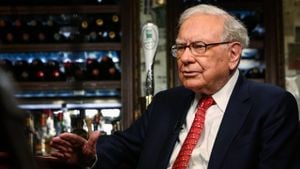HONG KONG -- A Hong Kong court made headlines on Tuesday as it sentenced 45 prominent pro-democracy activists, marking the largest national security trial to date. The sentences ranged from four years and two months to ten years, with legal scholar Benny Tai receiving the longest term. The harsh penalties reflect the tightening grip of authorities following massive pro-democracy protests and the implementation of the controversial national security law by Beijing.
The activists were prosecuted for their involvement in an unofficial primary election held in July 2020. This election was organized to press for pro-democracy candidates who could win enough legislative seats to execute their political plans, which included blocking government budgets and possibly forcing the resignation of then Chief Executive Carrie Lam. The defendants were accused of conspiracy to commit subversion, underlining the court's assertion of their intent to undermine the authority of the Hong Kong government.
Critics argue this case symbolizes the broader suppression of dissent and civil liberties, with the Chinese government accused of using such trials to stifle political opposition. According to numerous observers, the crackdown on pro-democracy sentiments appears to contradict the promises made to the people of Hong Kong when the territory was handed back to China from British rule.
During the sentencing, some activists expressed remorse, pleading for leniency, whereas others remained defiant. The trials were conducted by judges deemed government-approved, raising concerns over the independence of the judicial system within Hong Kong.
The reactions to the trials come amid intense scrutiny from international human rights organizations and various Western governments. They view these political trials as blatant assaults on freedoms and rights guaranteed under international laws and agreements.
Among those sentenced were well-known figures from Hong Kong's political scene, including former student leader Joshua Wong, who received four years and eight months after pleading guilty. Wong has been widely regarded as the face of the pro-democracy movement, especially after his active roles during the protests of 2019.
The nature of the primary election held by these activists was significant. It drew participation from approximately 610,000 voters, indicating substantial public support for the pro-democracy movement. Yet, the elections were deemed illegal by the authorities just days after the national security law was enacted, instigated by the Chinese government’s pursuit to restore order after widespread protests.
After the sentencing, onlookers gathered outside the courthouse under heavy police presence. Supporters queued early, with reports noting individuals camped out overnight just to secure spots inside the courtroom to witness the proceedings. Many expressed concerns not only for the activists’ futures but for the future of democratic ideals within Hong Kong. Lee Yue-shun, one of the defendants who was acquitted earlier, urged the public to continue showing care for the conditions of those convicted.
The local judicial developments seem to refute the belief held by some Western nations and advocates for freedom and democracy, as they warn against the rising authoritarianism permeated through such legal actions. John Burns, an expert on Hong Kong’s political fabric, described the trial as the authorities’ method to quell opposition and reshape public sentiment toward political beliefs.
Burns also articulated concerns over the legitimacy of political processes following the 2021 electoral reforms which restricted nomination for candidates solely to “patriots,” effectively removing many opposition figures from the political arena.
The aftermath of the court decisions has created ripples across Hong Kong, as the trial symbolizes what could be the transition of the city’s political future. Historical precedents indicate the importance of political leadership shaped by public opinions; the extent to which citizens can express such dissent continues to be curtailed.
Since the national security law came out, accusations have been rife asserting it aims to streamline governance, but critics assert it is rather detrimental to the civic freedoms once enjoyed by residents of Hong Kong. This recent conviction of multiple activists has raised alarms, foreshadowing possible widespread repercussions against future political engagement.
The Hong Kong 47 case serves as not just another headline; it may well be seen as the nail on the coffin for the pro-democracy movement's past efforts to assert more autonomy through legislative measures. With the current political climate being fraught with tension and mistrust, many questions linger around the actual future of political liberty and public expression within Hong Kong.
While the Chinese and Hong Kong governments maintain their stance defending the national security law as necessary for stability, the echoes of the activists’ resounding calls for democracy juxtapose poignantly against the backdrop of silence imposed through fear of retribution.



